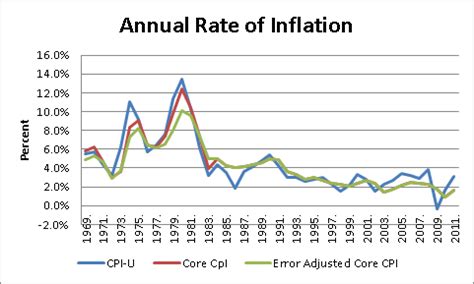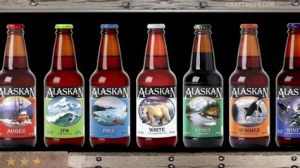How do you win the fight against inflation? One battle at a time, starting with the grocery store.
Would you believe it if I told you that I saved 25% shopping this week?
If you don’t know me already, I am just an above average guy. Everything about my life academically and economically has placed me above the mean, but not by much. I discovered over the decades that my pattern of consumption seemed to follow national trends with a few exceptions. So I am reasonably confident that my decisions this past week while shopping for groceries portends to what is, or will be, happening to the economy in the coming weeks.
Inflation is not exactly crazy, but it is high and it is getting painful. I have been traveling for several months and the places I have been in the US have generally sported prices that were significantly lower than what I experience in the wilderness city of Juneau, Alaska. So when I returned home to Alaska a couple of weeks ago, my first trip to the grocery store was a shocking experience. You can say it was almost a post-traumatic-stress event. A lot of emotions returned, memories that I did not necessarily want to repeat.
It was the late 70’s. I had just graduated from college and I was looking for a summer job while still trying to figure where to go for graduate school. The prospects were not good with unemployment at 12%. But I finally landed a job building cabin cruisers for Chris-Craft. Needless to say, that was a gloomy time for a lot of people. I was fortunate. But I eventually headed back to Columbia, Missouri pursuing a Masters in Agriculture Economics. Being around economists at this time was quite an experience, especially at Mizzou. It was interesting times with inflation and high unemployment, gas lines and the Iran crisis. The times we lived encouraged rigorous discussion on which theory of economics was the most realistic. I got the full range, from Maynard Keynes to Milton Freidman.

While all the debate was well and good, I had to cope with surviving. The assistantship plus odd jobs here and there paid the rent, but I really had to get creative. Every trip to the grocery store was an economics lab on how the market was coping with rampant inflation. This state of crisis would persist for several years, ending only in the late 80’s after Reagan applied Friedman’s concepts of money supply management to the national economy. You may not know what that is, but let’s just say it is the opposite of what we have seen from our presidents in the past fourteen years.
So as I browsed the shelves last week and gazed at the dramatically higher prices and the subtle diminished packaging, I had to make some radical decisions. Believe it or not, I left the store actually saving as much as 33%. This is how I did it.

Whenever you need to turn around your life financially or if you are trying to turn around a business, the easiest thing to address is the “low hanging fruit.” In our case, it was our recent inclination to purchase organic food. As I looked at the price differences, I could see that some things were not that much different (like bananas). But most every item I looked at was 25-33% more expensive if it was organic. Organic tomatoes were 100% higher. So I avoided organic food.
The second thing was the refusal to buy meat. I despise chicken breast because we eat it frequently. But, by golly, it was the cheapest. I bought those hormone-packed “chicken” breasts that would have passed for turkey breasts in the 70’s. No beef. Only pork I purchased was a thick cut slab of ham (no processed meat). I bought bulk packages of ground turkey. I also bought chicken thighs for only 99 cents a pound, with the bone. Boneless thighs were $3 per pound. 66% savings, but less meat.
As I shopped I recalled keeping to a budget in college. I grabbed a bulk package of ramen noodles at Costco. Added to that would be canned vegetables that I mix together to add to the ramen. That is my lunch. Sort of related to that is expanding my use of vegetable and chicken broth in my cooking. To get an understanding about my experience with ramen, I learned about it from my Japanese housemate. His parents sent him care packages. Ramen was not generally found in grocery stores in western Michigan during the 70’s. So he shared his packages with us and I noticed how he could work up a feast beginning with a base of ramen.
Next, buy only raw, unpackaged vegetables. Sometimes frozen vegetables are just as cheap with zero wastage, but I had to forebear the usual purchase of boxed, washed spinach. Instead, I buy spinach by the bundle. I typically eat a full bundle in two to three days. Another trick is to not throw away the fluid when you eat all the pickles. I purchase a cucumber, slice it and throw it into the jar. Voila. For $1.80 I replenished a $5.50 jar of pickles!

Finally, ditch the alcohol. Juneau has one of the finest breweries in America and I always have a fully stocked small refrigerator containing an array of my favorite brews. The refrigerator is now empty. I now just drink plain soda water, generic brand (sorry La Croix). Even that may be on the chopping block someday.
Related to our food consumption is eating out. That is the easiest thing to discontinue and it has significant savings when you do that. We almost always go out for a late lunch on Sunday afternoons. I will be working on not doing that one week out of the month to save a few more dollars.
We are retired – so our income is flat. I can still solve the inflation job by getting a job somewhere, but I am not in the mood for that. So to solve the inflation problem, we have to cut costs. The decisions I made last week cut costs radically compared to what we would have paid.
We were young once with three kids to raise. So I understand that for many families they have done all of the above and are still desperately trying to figure out how they are going to make ends meet. But we know the drill. Mac and cheese out of the box is quick, easy and cheap. It’s awful nutritionally, but it is what it is.
So there you go. If you are wondering who is going to get hurt first by the inflation, just follow my list.
- Organic Foods
- Meat
- Packaged vegetables
- Alcohol
- Restaurants
Who will benefit?
- Cheap, generic foods
- Fresh vegetables
- Ramen
- More Ramen
I could add another aspect of fighting inflation – remember your grandparents. I was lucky to have had grandparents who immigrated from Germany. They survived the Great Depression through an amazing urban farming system they put together, living in a small cottage in Kirkwood, Missouri. On that lot they had a big garden, and raised laying hens, doves and even goats. My dad shared with me how meat was a luxury. An orange was a Christmas present! But what stuck from all that was the resourcefulness of the European peasant. To this day, my father will cook meals of boiled cabbage, sauerkraut, corn beef, and potatoes. I would suggest you read up on recipes that our ancestors used before there were grocery stores.
Even in good times, we had meals on a regular basis that were simple and cheap. Baked potatoes with an array of fixins’. Tortillas with strips of grilled chicken breast and sauteed vegetables. Then there is par excellence en cuisine – left-over goulash. In essence, it can be said that the worse of times can bring out the best in us.
Of course, there is the Inflation Diet 🙂
© Copyright 2022 to Eric Niewoehner
